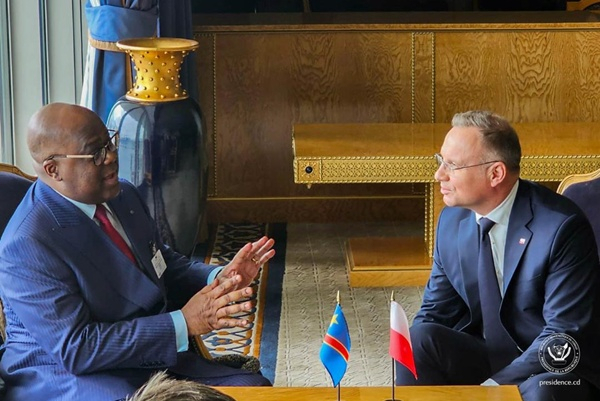The Presidents of Poland and the Democratic Republic of Congo met on September 19, 2024, in New York, on the sidelines of the UN General Assembly. After the meeting, the Congolese presidency reported that several Polish and Congolese experts had been working for weeks on draft cooperation agreements related to digitalization, digital transformation, and border surveillance.
Over the past 20 years, Poland, a member of the European Union since 2004, has made massive investments in telecommunications infrastructure, including fiber optics, high-speed Internet, and modernizing mobile networks. Consequently, Poland became one of Europe's leaders in digital transformation.
A partnership with Poland would allow the DRC to benefit from its technical expertise in key projects, such as deploying submarine cables and improving mobile infrastructures in rural areas. This would be crucial in boosting connectivity in underserved regions while modernizing the national network.
Relative to digitizing public services, Poland's experience could be vital for the DRC. According to the European Commission's E-government Benchmark report, Poland is one of the European countries that has made the most progress in digitizing public services since 2020. By following Poland’s example, the DRC could accelerate the development of government platforms accessible via mobile, thus promoting transparency and combating corruption, particularly in the delivery of official documents.
Recently, the DRC has made considerable efforts to combat corruption in this sector by launching the banking of legal fees. A report by the Cour des Comptes revealed that magistrates, clerks, police officers, and others involved in judicial administration were directly charging fees to the detriment of the public treasury.
Thanks to its advances in cybersecurity, Poland could provide strategic support to the DRC in securing its borders and strengthening its digital defense capabilities.
OS










